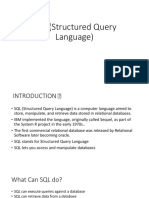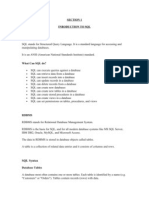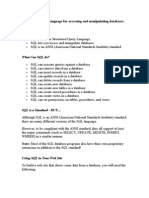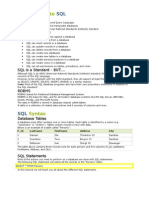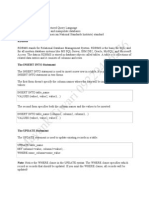0% found this document useful (0 votes)
132 views13 pagesSQL Query Execution Order Guide
The document discusses the order in which clauses in an SQL query are executed by the SQL engine. It explains that the FROM clause is executed first to identify the tables being queried. Next, any JOIN clauses are processed to combine rows from multiple tables. Then, the WHERE clause filters rows based on conditions. Subsequent clauses like GROUP BY, HAVING, SELECT, ORDER BY, and LIMIT/OFFSET are executed in that order to group, filter grouped rows, select columns, sort results, and limit rows returned. Understanding this order helps write accurate, efficient queries with faster execution times and avoids errors.
Uploaded by
Humayun FarooqiCopyright
© © All Rights Reserved
We take content rights seriously. If you suspect this is your content, claim it here.
Available Formats
Download as PDF, TXT or read online on Scribd
0% found this document useful (0 votes)
132 views13 pagesSQL Query Execution Order Guide
The document discusses the order in which clauses in an SQL query are executed by the SQL engine. It explains that the FROM clause is executed first to identify the tables being queried. Next, any JOIN clauses are processed to combine rows from multiple tables. Then, the WHERE clause filters rows based on conditions. Subsequent clauses like GROUP BY, HAVING, SELECT, ORDER BY, and LIMIT/OFFSET are executed in that order to group, filter grouped rows, select columns, sort results, and limit rows returned. Understanding this order helps write accurate, efficient queries with faster execution times and avoids errors.
Uploaded by
Humayun FarooqiCopyright
© © All Rights Reserved
We take content rights seriously. If you suspect this is your content, claim it here.
Available Formats
Download as PDF, TXT or read online on Scribd
/ 13





















